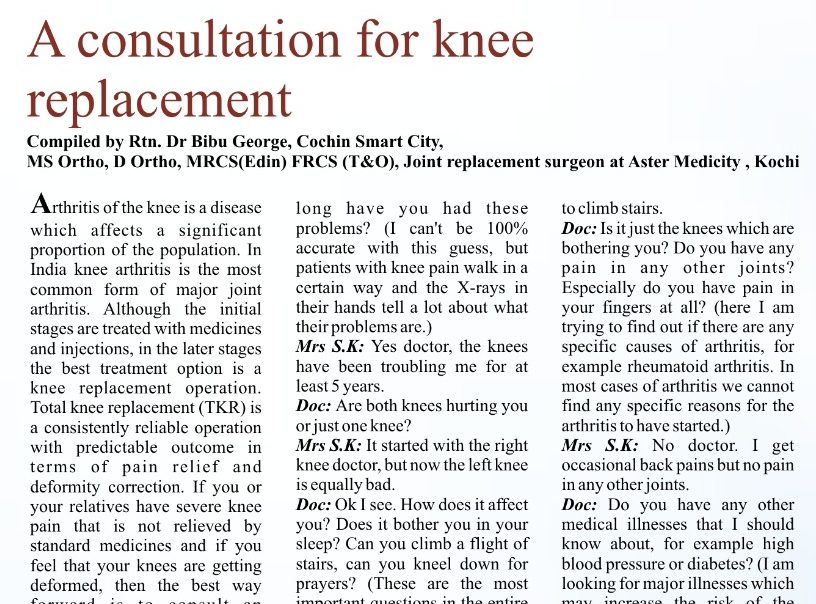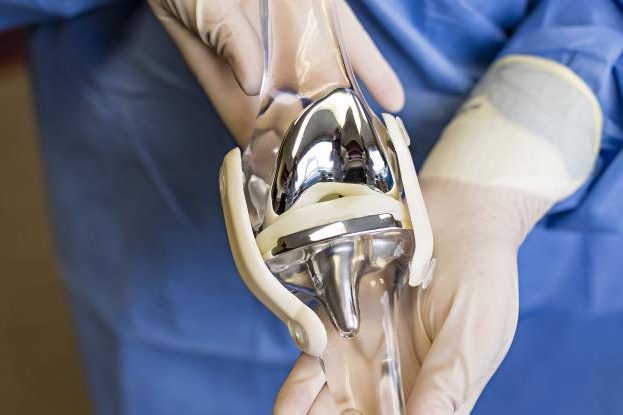
In a healthy knee, the ends of your thigh and shin bones are covered with hard cartilage which allows the bones to move easily against each other. Arthritis damages the hard cartilage so that it becomes thin. In places the cartilage may wear away so that your bones rub against each other and become worn.
In a knee replacement operation, the worn ends of the bones and any remaining hard cartilage are removed and replaced with metal and plastic parts. The plastic acts like hard cartilage, helping your joint to move freely. The interlocking parts of the artificial joint allow your knee to bend while also making it more stable.
You won’t necessarily need a knee replacement if you have arthritis of the knee. But it may be worth considering if your knee is damaged by arthritis and the pain, disability or stiffness are having serious effects on your daily activities.
Even then, your healthcare team will always try other measures before suggesting a knee replacement, including drug treatments, physiotherapy and weight loss. If your symptoms are still manageable and your medication is effective then you may prefer to wait.
Orthopaedic surgeon will be able to advise you on the surgical options and on the potential pros and cons of having or delaying surgery, taking into account your age, health and level of activity.
Most people who have a knee replacement are over 60 years of age. The younger you are when you have surgery, the greater the chance that you’ll need repeat operations. If you’re under 50 and decide to have surgery, then you’re more likely to need a repeat operation in later life. However, there’s evidence that the outcome may be better if you don’t wait until your knee becomes very stiff or deformed.

Compiled for the Cochin Smart City magazine. Arthritis of the knee is a disease which affects a significant proportion of the population. In India knee arthritis is the most common form of major joint arthritis. Although the initial stages are…
read more
A total knee replacement is a surgical procedure whereby the diseased knee joint is replaced with artificial material. The knee is a hinge joint which provides motion at the point where the thigh meets the lower leg. The thighbone (or…
read more
Osteoarthritis (OA) is one of the most common forms of arthritis. It is a chronic condition in which the material that cushions the joints, called cartilage, breaks down. This causes the bones to rub against each other, causing stiffness, pain…
read more
In a healthy knee, the ends of your thigh and shin bones are covered with hard cartilage which allows the bones to move easily against each other. Arthritis damages the hard cartilage so that it becomes thin. In places the…
read more